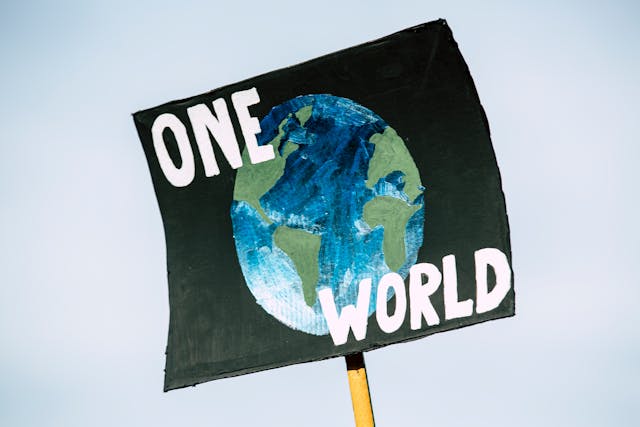If you read the news, scroll through social media, or talk to pretty much anyone, you’re going to hear about climate change and the environment, and the stories you hear probably won’t be positive ones. That means it can become so very easy to become completely overwhelmed and anxious about the future of the planet, and in the end, that can lead to some nasty mental health issues, or at least unhappiness.
It’s true that the situation is an urgent one and we all need to do whatever we can to ensure that the planet is protected, but it’s crucial to do that while being calm, no matter how chaotic it might be. That’s not always going to be easy, of course, but there are some things to do that will help and give you a clearer mind to help you tackle the problem head on. Read on to find out what you can do.

Educate Yourself
They say that knowledge is power, and it’s certainly true that the less you know about something, the scarier it’s going to seem. That’s why it’s so important to understand the science behind climate change because when you do, that can help reduce some of the fear you’re feeling, and make things at least a little bit less uncertain.
Don’t just take the time to educate yourself about the causes of climate change, but learn about the consequences of it and as many of the potential solutions as you can. That way you’ll have plenty of options so that rather than just sitting and worrying, you can take positive action.
When it comes to educating yourself about climate change, there are going to be lots of websites and newspapers that report scary stories that aren’t one hundred percent accurate – they’re just clickbait. The best thing to do is read reliable scientific journals, reputable news outlets, and check out what specific environmental organizations are saying – that’s how you’ll get the most accurate information.
Focus On Solutions
There’s no two ways about it; the challenges that climate change brings about are daunting, to say the least. However, rather than focusing on that element of things, which is just going to make you feel worse and more and more upset (and potentially useless), it’s better to shift your focus from despair to action – from worrying about the outcome to changing it in a positive way.
The first thing to do is to look at the solutions that are already in place – recycling, electric cars, government targets, renewable energy, tree-planting schemes, and so on – because that’s going to show you that good things are happening and it’s not all doom and gloom. You can see what’s happening and look at the progress that’s being made, and that could be a very helpful thing to do indeed. Once you’ve seen what’s happening, work out which of those solutions you can do yourself on a daily basis – could you switch to energy-efficient appliances, for example, or recycle more? How about getting solar panels on your roof? By focusing on the solutions, you’ll be in a much more positive frame of mind, which will help you move ahead and make real changes.
If you find it hard to get started, you might need some inspiration, and that’s going to be different for everyone. If you’re religious, you could learn about understanding tribulation in the Bible, for example, to give you hope for the future. Or perhaps you want to take your inspiration from the scientists who are determined to discover how to reverse climate change. Whatever it is, finding your inspiration will make a positive difference and could be the catalyst to getting started on implementing climate change solutions into your life.
Take Action
Feeling helpless is a common reaction to how big the issue of climate change really is, but taking action, no matter how small that action might be, can give you a positive mindset and help you move forward knowing you can make a difference – that’s powerful stuff.
So what can you do? Well, we’ve already mentioned few ideas above, and research is definiely something you’ll need to carry about, but some things to consider include reducing your carbon footprint by driving less, eating a more plant-based diet, participating in local clean-up efforts, or even taking part in marches and meetings to try to get important policies changed or created. Whatever it is, by doing your part, you can help the planet and yourself.
























